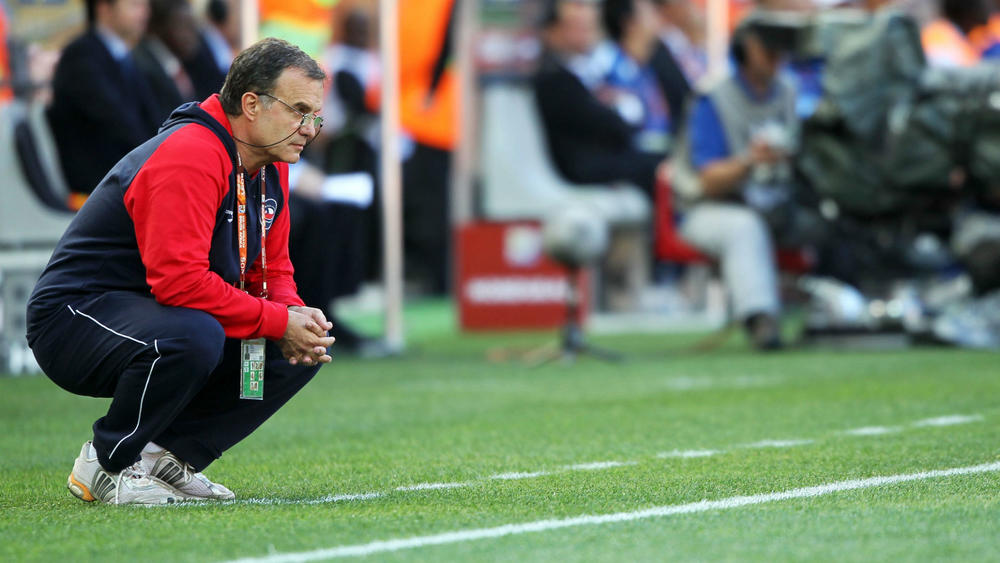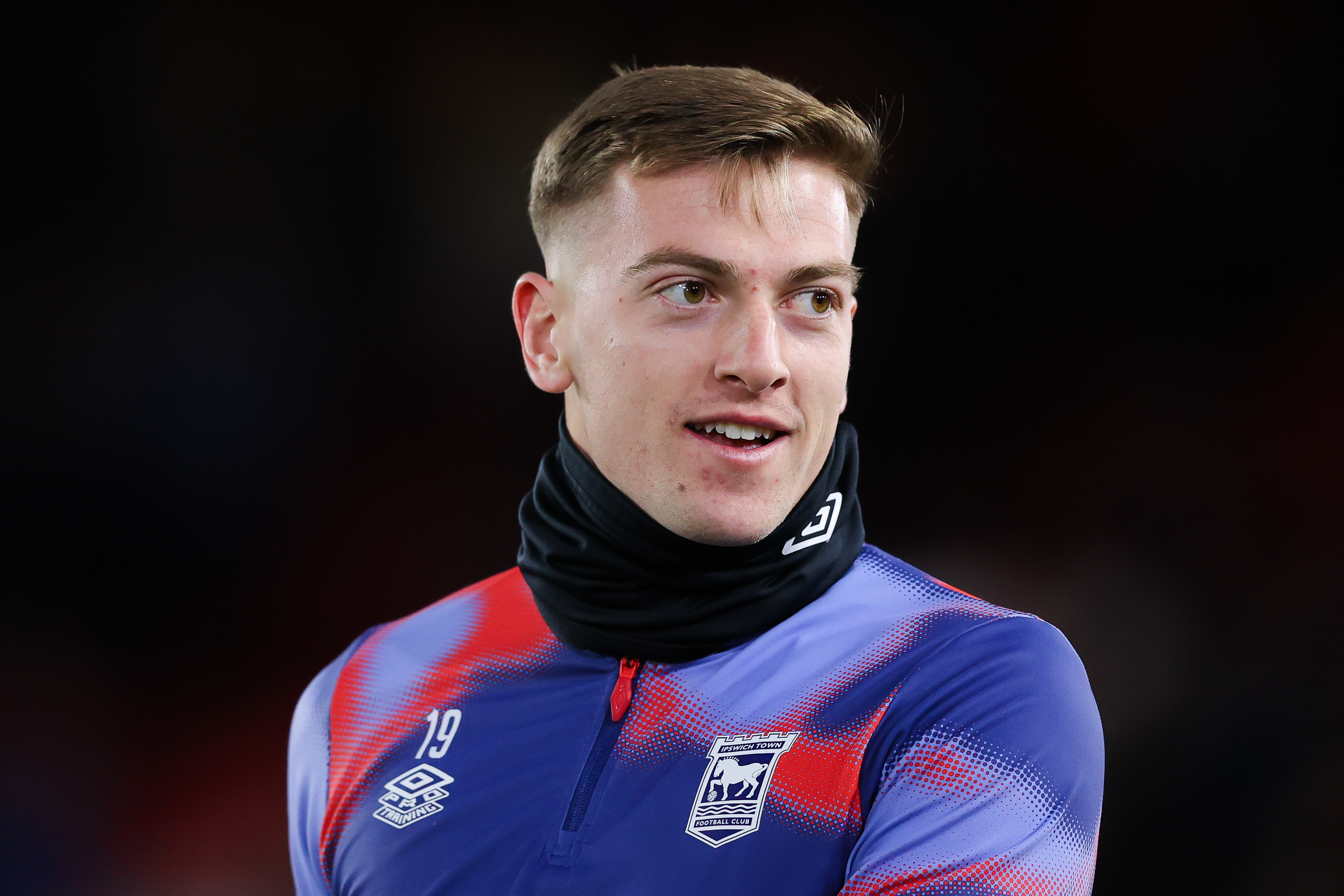Olympic gold, hot with Chile and El Loco in Lazio: The highs and lows of Marcelo Bielsa
After his appointment at Leeds United, we take a look back at the career of the man nicknamed 'El Loco', Marcelo Bielsa.

Marcelo Bielsa is a man with a lengthy career resume and a serious case of wanderlust, with Leeds United the latest destination on his tour of the footballing world.
The Argentinian - nicknamed 'El Loco' and renowned for his attention to detail - was officially confirmed as the new head coach at the Championship club on Friday, turning what seemed at first to be a pipe dream for their fans into reality.
Bielsa working in England’s second tier is enough to make the mind boggle. Here is a 62-year-old with huge experience as a coach, both at club and international level, someone who has been appointed by teams in Ligue 1, LaLiga and Serie A (albeit not for too long in the case of the latter) and worked at the 1998 and 2010 World Cups.
Now, though, he has accepted the task of trying to restore Leeds back to the Premier League, having agreed to become their 11th boss since February 2012. A match made in heaven, or a recipe for disaster?
Only time will tell if the move works for both parties, but ahead of his arrival at Elland Road, we look back at some of the highs and lows for Bielsa.
| New head coach Marcelo Bielsa on his appointment today June 15, 2018
High: Early joy in Argentina
Get FourFourTwo Newsletter
The best features, fun and footballing quizzes, straight to your inbox every week.
How well loved is Bielsa at Newell’s Old Boys? Well enough for his hometown club to name the stadium after him!
The Rosario-based club honoured their former boss – who steered them to titles in 1991 and 1992, as well as a Copa Libertadores final when a young centre-back named Mauricio Pochettino was in the team – by rebranding their El Coloso del Parque home in 2009.
Bielsa also enjoyed domestic success during his tenure at Velez Sarsfield in 1998, having returned to Argentine football after spells with Atlas and America in Mexico.
Low: World Cup disappointment
After just a few months at Espanyol, Bielsa accepted the opportunity to replace Daniel Passarella in charge of Argentina’s national team following the 1998 World Cup.
La Albiceleste were expected to be a contender in the next edition of the tournament in 2002, but instead failed to get out of their group. A squad featuring Gabriel Batistuta, Hernan Crespo, Juan Sebastian Veron and Javier Zanetti finished third behind Sweden and England, booking an earlier-than-expected flight home from the Far East.
High: Olympic success
After suffering World Cup disappointment two years earlier, Bielsa missed out on winning the 2004 Copa America in July when Argentina lost to fierce rivals Brazil in a penalty shoot-out in the final. They had seemed set for glory when 2-1 ahead moving into injury time, only for Adriano to grab a dramatic equaliser.
However, Argentina enjoyed better fortunes at the Olympics in August, securing the country's first gold medal for 52 years. They did not concede a goal throughout the tournament, with the free-scoring Carlos Tevez grabbing the winner against Paraguay in the final.
Success in Greece appeared a positive sign for the national team’s future under Bielsa, yet he never made it to the next World Cup, citing exhaustion when stepping down from the post a month after the Games.
High: Warming up Chile
Bielsa returned to work in 2007, taking charge of a Chile team desperately needing inspiration. The combination of a coach with a clear footballing ethos and a group of talented young players willing to listen worked wonders for the team's fortunes, including a first victory over Argentina in a competitive fixture.
La Roja qualified for the 2010 World Cup too – their first since 1962 – and went on to reach the last 16. While their campaign ended with a 3-0 loss to Brazil, the seeds had been planted for the future.
Although Bielsa walked away in October the same year - unwilling to carry on after Harold Mayne-Nicholls lost the Chilean Football Federation presidential election - he had helped develop a generation who went on to win back-to-back Copa America titles.
Highs: Athletic Bilbao and Marseille
Bielsa moved back into club management after ending his time with Chile, starting out at Athletic Bilbao. Again, his precise methods were put into practice on the pitch by a young group of players, including Javi Martinez and Ander Herrera, now of Bayern Munich and Manchester United respectively.
Bilbao knocked out United on their way to the Europa League final in 2012, though they came up short in an all-Spain showpiece against Atletico Madrid in Bucharest.
A second season failed to provide the same level of success, leading to Bielsa’s exit in June 2013, but he engineered a similar turnaround in his next job, at Marseille. Apart from famously sitting on a cup of coffee while watching his team play, he also made headlines by steering them to fourth place in the 2014-15 season.
Lows: Lazio and Lille
The last two stops for Bielsa have been short and not so sweet. His time with Lazio in July 2016 officially lasted all of two days, as he claimed the Italian club had broken promises in terms of transfers. "For my style of work we needed to have these players arrive in a timely manner to train," he said in a statement.
He lasted a little longer at Lille, albeit that partnership also ended in bitter circumstances.
Appointed with high hopes prior to the 2017-18 campaign, Bielsa started in style with a 3-0 triumph over Nantes. Yet the early hope soon fizzled out; Lille recorded just two more wins by the middle of November and, after briefly being suspended by the French club, the well-respected coach departed with the team stuck in the relegation zone.
